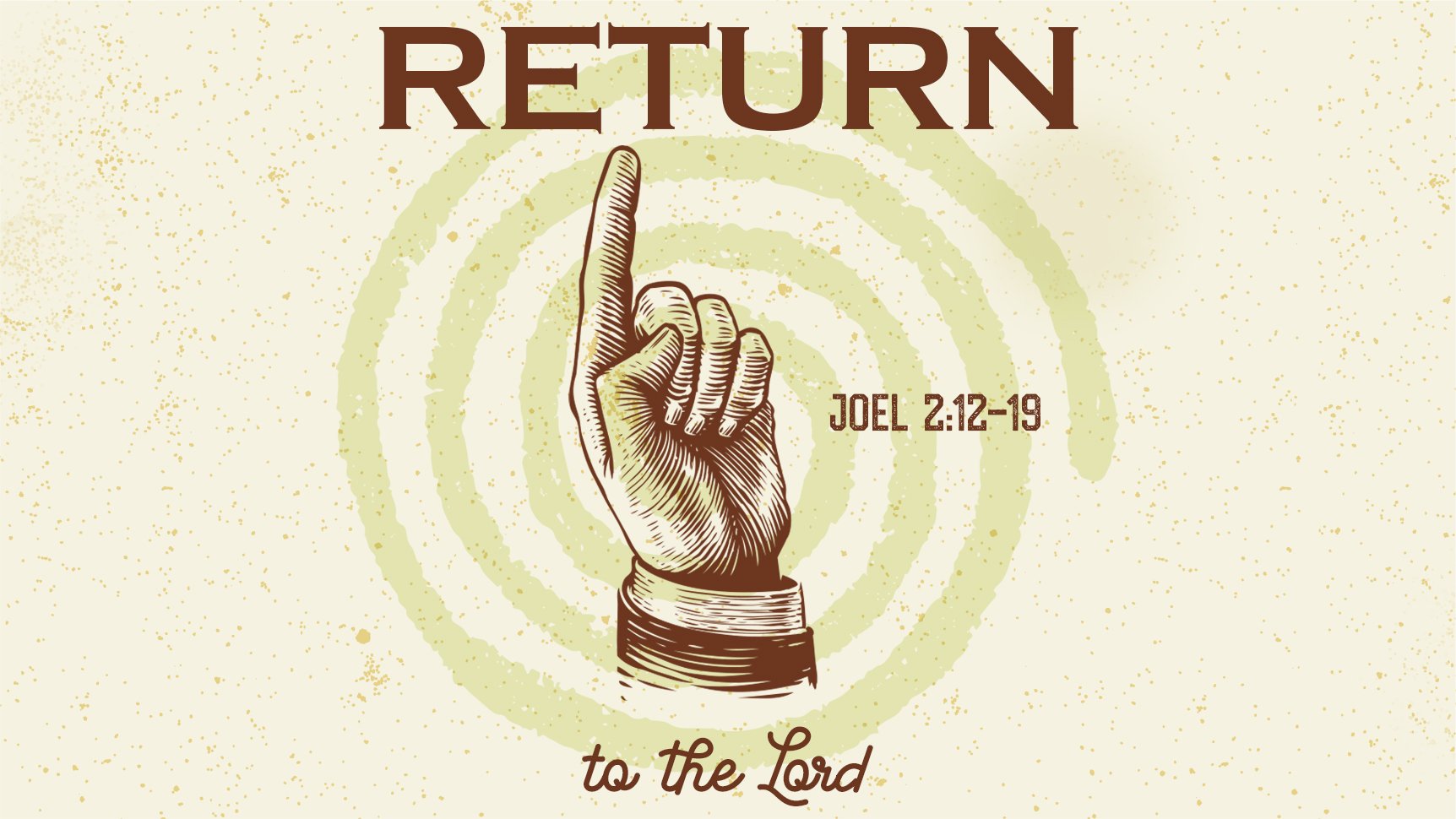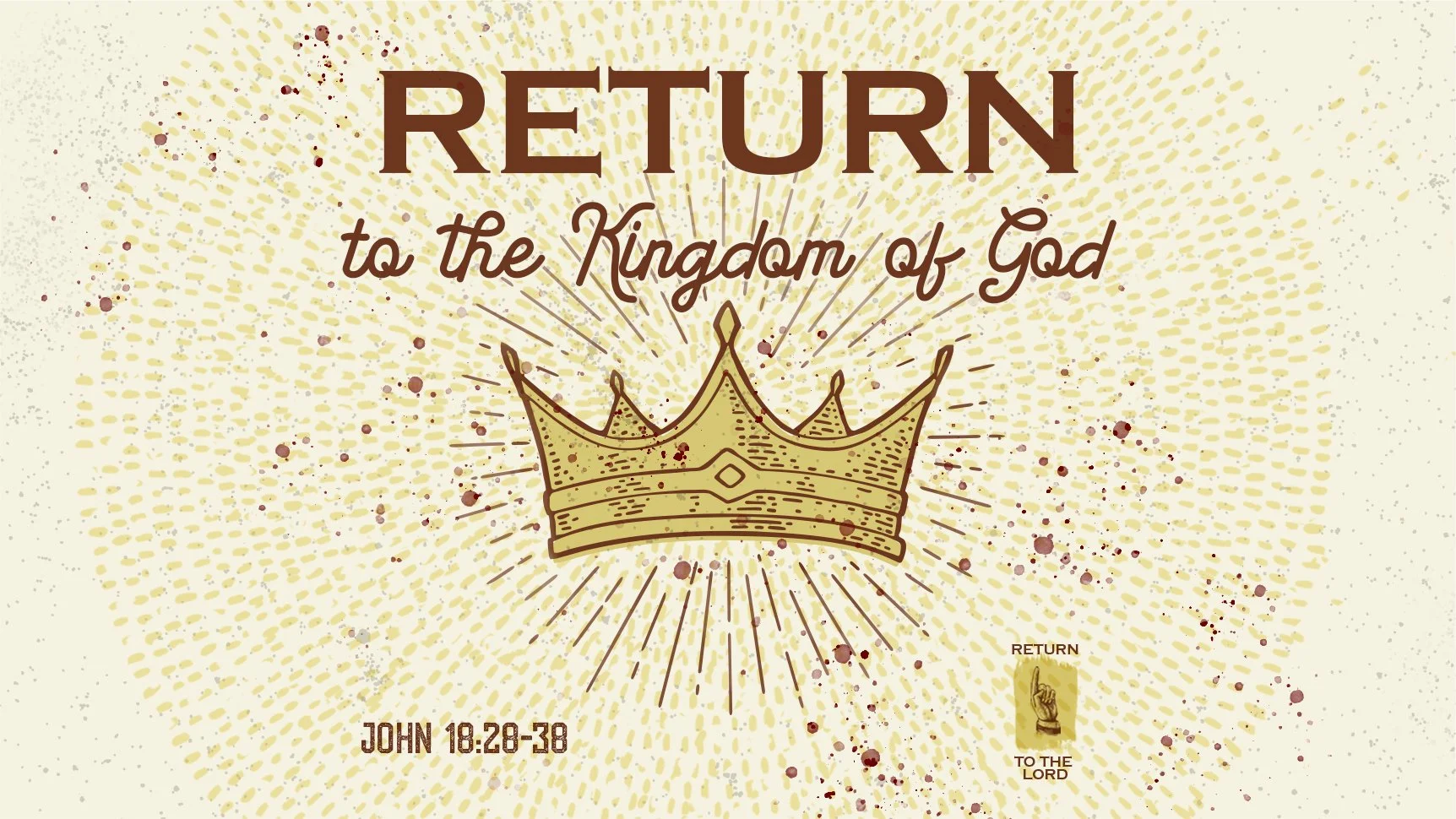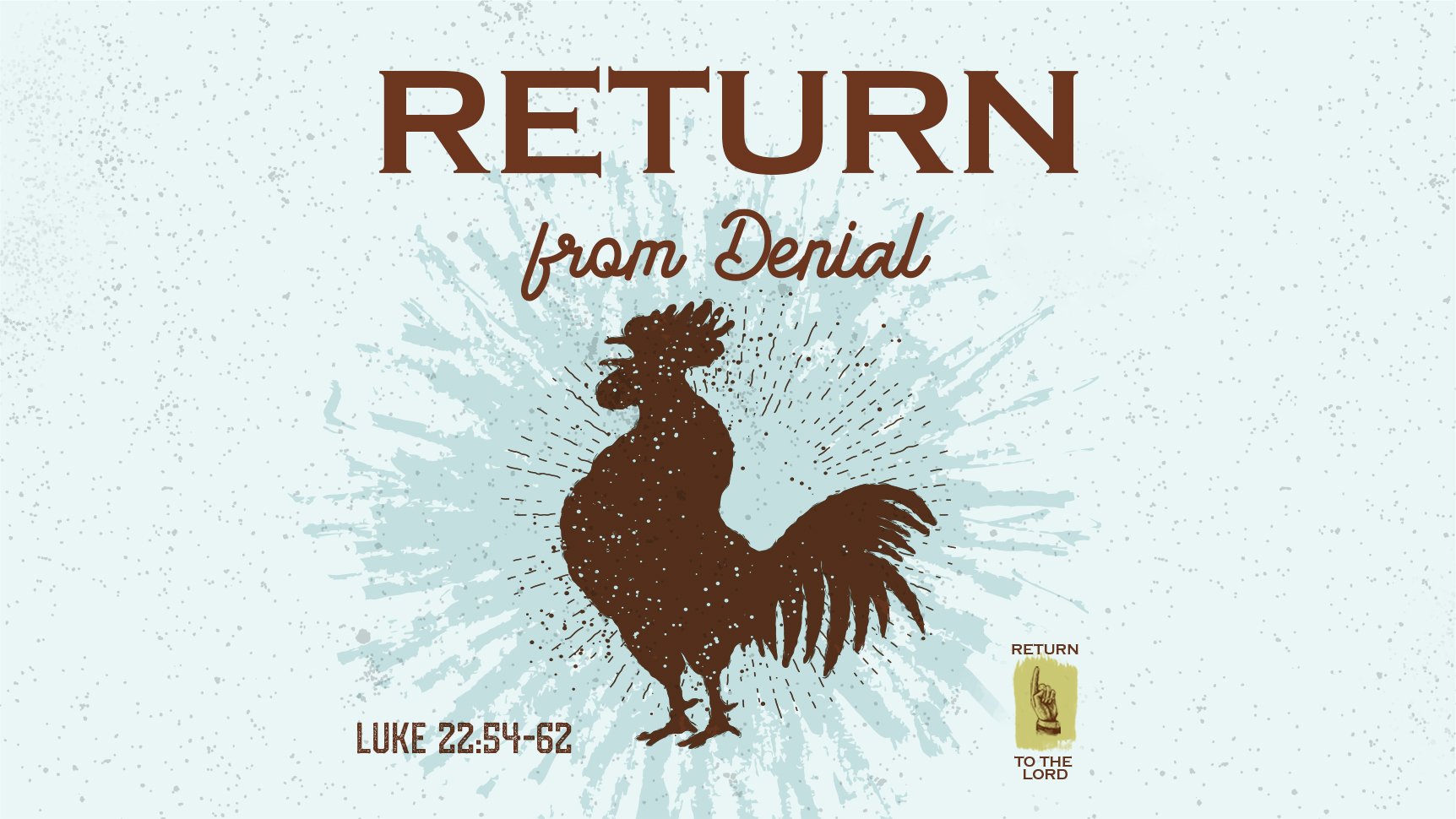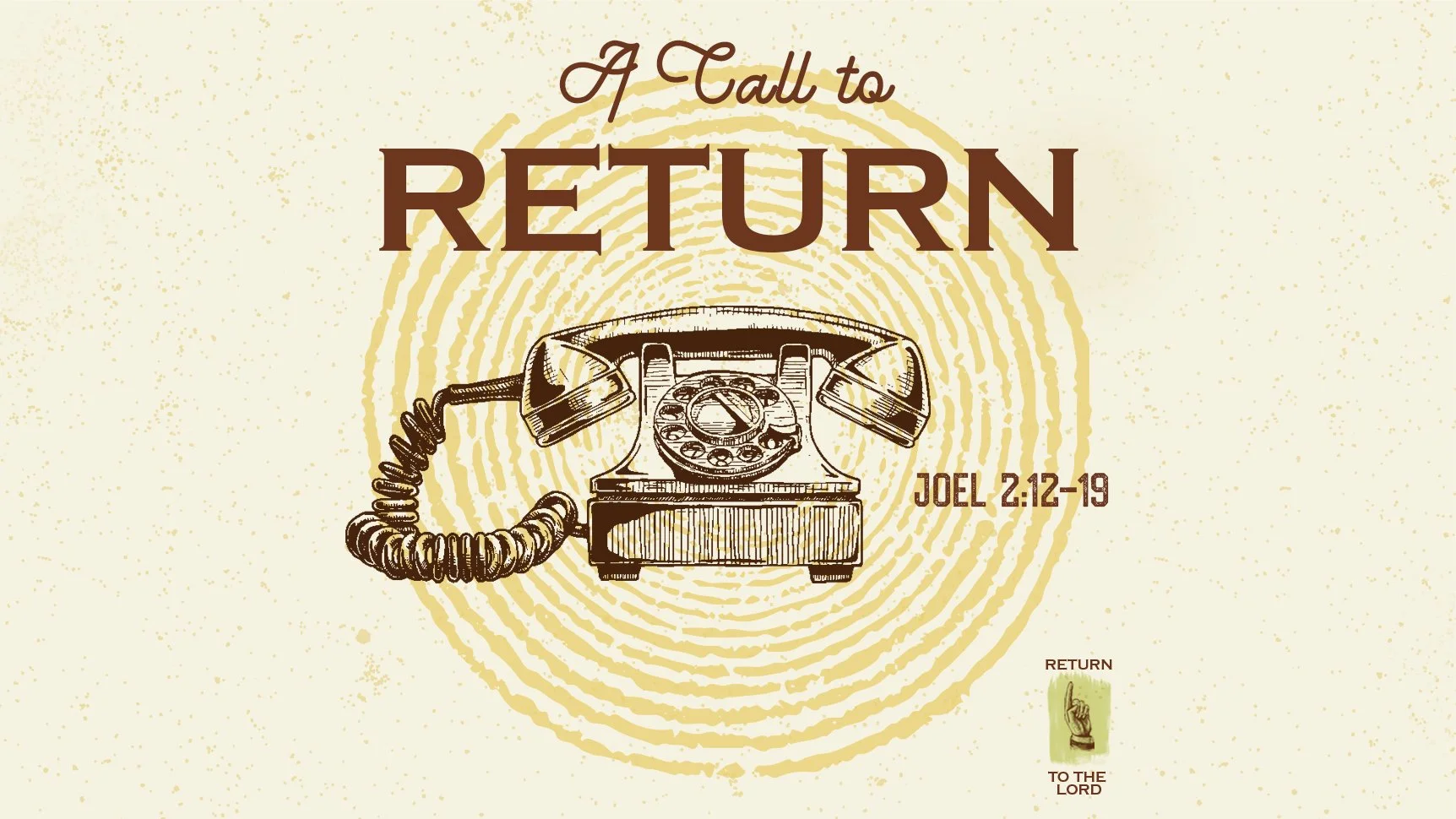Return to the Church | Twenty-second Sunday after Pentecost
“...Return to the Lord your God,
for he is gracious and merciful,
slow to anger, and abounding in steadfast love...”
November 6 | 10:45 a.m.
Twenty-second Sunday After Pentecost
READINGS
READINGS
Psalm 69:16-21
Zechariah 12:10-13:1
1 Corinthians 12:12-14
John 19:28-37
message presented by Rev. Frank C. Ruffatto
+Points to ponder
- Having heard/read the sermon, how do you answer the question, ‘Why are you here?’
- What does it mean for us to be ‘the Bride of Christ’?
- How can we encourage each other to live out our call to be the Church?
+Sermon Transcript
Grace, mercy, and peace be unto each of you from God our Father and our Lord and King, Jesus the Christ. Amen.
Let us pray: O God, whose blessed Son came into the world that He would destroy the works of the devil and make us children of God and heirs of eternal life: Grant that, having this hope, we may be clothed in the righteousness of Christ and joyfully live together as His Bride, the Church. In the name of Christ, Amen.
Why are you here? The question can seem to be little forward, I admit, but please don’t be offended. I’m not trying to make you uncomfortable. I am asking, rather, to nudge you to think about how you came to faith; how you were led to become a member of the church; how you were joined to this community of believers. And, honestly, I hope to make us all consider what it means that God has called us to be members of His Body and how He uses us to encourage and support one another as we live out our faith.
Our sermon series in this season of contemplation and celebration has focused on God’s call, especially His call through Joel to return to Him, to turn from our sins, to trust in Christ, and to be saved. The imagery of returning has come up again and again as we have looked at the events of Jesus’ Passion, examining the various sins committed and considering how we transgress God’s Commandments in our own lives. That part of it has been sobering and difficult. But the rest of Joel’s message has offered hope and comfort: “Return to the LORD your God, for He is gracious and merciful, slow to anger, and abounding in steadfast love; and He relents over disaster.” We have seen that God’s relenting over disaster involved sending His own Son into the world. We have been comforted to hear again that our salvation has been secured for us by His all-availing sacrifice on the cross.
That sacrifice is front and center today, as we gather together with idea of being in a sort of in-between time. That is, much like Lent we experience Good Friday and then we live in the in-between which is the expectation of the Easter Sunday to come.
The events of Christ’s crucifixion are the starting point for our Gospel today. The death of Christ is retold with few words but massive effect in John’s Gospel: “When Jesus had received the sour wine, He said, ‘It is finished,’ and He bowed His head and gave up His spirit.”
We start there, because that is the place where everything comes together. On the cross, weighed down with your sin, pained by the departure of God’s presence, Christ finally completes His earthly mission. We do well to pause and simply reflect on this scene for a moment in order to set the stage for the call we will hear today.
“On three separate occasions, God told parents in Israel how to answer the serious questions of their sons and daughters. This would indicate that God wants us to take the time to answer [not only] our children [but also others] when they ask us about spiritual matters. How we respond can either greatly help or terribly discourage them.
Russian novelist Leo Tolstoy told of an aunt who hurt him deeply when she didn’t take time to answer some questions that were troubling him. She stirred his emotions by telling him of Jesus’ crucifixion, but when he cried out, ‘Auntie, why did they torture Him?’ she said simply, ‘They were wicked.’ ‘But wasn’t He God?’ Tolstoy asked.
Instead of explaining that Jesus was indeed God, that He had become a man so He could die for our sins, she said, ‘Be still – it is 9 o’clock!’ When he persisted, she retorted, ‘Be quiet, I say, I’m going to the dining room to have tea.’ This left young Tolstoy greatly agitated.
Commenting on this scene, Calvin Miller said, ‘Tolstoy found it incomprehensible that Christ had been brutalized and his aunt was not interested enough to stay a little past teatime and talk about it.’
Do we allow our own interests – a television program, a sporting event, a hobby, a fear of mocking and rejection – to keep us from taking time to listen, [and give an answer for the hope that is within us. ] If we pause long enough to explain His truth, He will use it to change lives.’”
John emphasizes on more than one occasion that Jesus did what He did “to fulfill the Scripture.” He was carrying out a plan that His Father had put into motion way back in the Garden of Eden. Finally, it was coming to fruition. What Satan corrupted, Jesus is putting right. “It is finished.”
Something surprising happened next. The Jewish leaders, intensely concerned about the scriptural law, at least where the Passover was concerned, asked Pilate to break the legs of Jesus and the two criminals. They wanted to speed along the process of death and avoid the negativity of having the bodies still hanging on the cross during the Sabbath. The soldiers discovered that Jesus was already dead, so they did not break His legs. Instead, a soldier jabbed a spear into His side, and blood and water came pouring out, confirming that He was dead.
That wound – our Lord’s pierced side – is filled with meaning. That wound brought the whole episode to a crushing end. The apostle John and Mary, Jesus’ mother, looked on, devastated. The disciples had scattered and had no idea what to do with themselves; their leader was dead. They looked on Jesus, dead on the cross, and they mourned for Him. They mourned for Him the way you would mourn the loss of a child or a parent or a dear friend. They wept bitterly over Him. They wept the way you would weep if you lost your firstborn child. That day, the mourning in Jerusalem was like the mourning we experienced on 9/11, as we tried to make sense of the loss of life. That day, the mourning in Jerusalem was like the mourning our country went through after the attack on Pearl Harbor. Everyone mourned. Families gathered close together. But even at that, each person felt alone. Wives drifted away from their families to cry privately in the bedroom. Youth curled up in their beds to try and make sense of the tragedy.
The day that Jesus died was a dark, dark day. No one quite understood what to make of it. But on that day, a wound was opened in Jesus’ side, and blood and water poured forth from it. Something amazing happened. A fountain was opened for us. A fountain of blood and water that didn’t mean death, but life. A fountain of holy blood and holy water that would give birth to the very Bride of Christ. A fountain that would provide everything needed to “wash [your] robes and [make] them white in the blood of the Lamb.” A fountain that would finally, eternally, crush the head of Satan and reconcile the whole world to God.
Max Lucado once shared, “I make no claim to being a good golfer, but I love to play golf and watch golf, and on good nights I even dream golf. So, when I was invited to attend the Masters Golf Tournament, I was thrilled. A pass to the Masters is the golfer’s holy grail. Mine came via pro golfer Scott Simpson.
Off we went to Augusta National Country Club in Georgia where golf heritage hangs like moss from the trees. I was a kid in a candy store. It wasn’t enough to see the course and walk the grounds; I wanted to see the locker room, where the clubs of Ben Hogan and Paul Azinger are displayed.
But they wouldn’t let me in. A guard stopped me at the entrance. I showed him my pass, but he shook his head. I told him I knew Scott, but that didn’t matter. ‘Only caddies and players,’ he explained. Well, he knew I wasn’t a player or a caddie. Caddies are required to wear white coveralls. So, I left, knowing I had made it all the way to the door but was denied entrance.
God has one requirement for entrance into heaven: that we, [by faith], be clothed in Christ. When [we repent and pray,] ‘Take away my [sin soiled] rags and clothe me in your grace,’ Jesus, in an act visible only to the eyes of heaven, removes the stained robe and replaces it with His robe of righteousness.
Jesus put on our coat of sin and wore it to the cross. As he died, his blood flowed over our sins, and they were cleansed. Because of this, we have no fear of being turned away at the door of heaven.”
When God created Adam, He determined early on that “it [was] not good that the man should be alone,” so He set out to make a helper fit for man. He had created all manner of animals and beasts, and He brought them to Adam to see what he would name them. But none of them was a suitable helpmate. So, God put Adam into a deep sleep and did a little surgery, taking a rib from Adam’s side from which He created a woman, Eve. “This at last is bone of my bones and flesh of my flesh; she shall be called Woman, because she was taken out of Man.”
From a wound in Adam’s side, the bride of Adam was made for him: a suitable partner; someone he could be with for his whole life; someone for whom he could give of himself; someone he could love and cherish; someone with whom he could share joy and companionship.
Today we remember something similar, and it starts with a wound in Jesus’ side.
Because from a wound in Jesus’ side, the Bride of Christ has been made for Him: a suitable partner; someone who will be with Him forever; someone for whom He had already given of Himself; someone He loves and cherishes; someone with whom He shares joy and companionship.
Beloved, you are that Bride. We are the Bride of Christ. God has called us into the Church, into a community of believers who make up the very Bride of Christ. That’s why you are here! He has called you into this community intentionally and for good purpose.
Because as a part of this community, you get to serve the Lord and to serve your brothers and sisters. In this community, the fullness of Christ dwells, and the Holy Spirit works. In this community, you get to encourage and support one another. We get to lift up one another. To rejoice with one another in the good times. To weep with one another in the bad times. To teach one another about God and His great love for us.
As we come together today to look “on Him whom [we] have pierced,” we see the flood of blood and water, and we realize that it is “a fountain opened for [all of God’s people], to cleanse [us] from sin and uncleanness.” This fountain gives birth to the Church, and God calls us together into this community for His sake and for ours. May we rejoice in our calling and always support and encourage one another as we live out our faith in Christ. Amen.
“May the God of hope fill you with all joy and peace in believing, so that by the power of the Holy Spirit you may abound in hope.”
ABOUT THE SERIES
In the Book of Joel, the prophet paints a vivid picture of the coming judgment of God, the Day of the Lord. The imagery is bold and terrifying. Joel’s prophecy has teeth even today as wars rage, natural disasters threaten and destroy, and our culture seems to be unraveling.
But right in the middle of this frightening portent, we find a tender invitation from the Lord: “Return to the Lord your God, for He is gracious and merciful, slow to anger, and abounding in steadfast love; and He relents over disaster” (Joel 2:13). God’s invitation and promise finds its fullness in Jesus Christ, who personifies and accomplishes all that God declares.
During this series, we will consider the theme “Return to the Lord” and examine how the call to return played out in practical ways for the people who walked alongside Christ as He demonstrated and carried out God’s grace and mercy on our behalf, taking God’s wrath upon Himself, setting the stage for God to “turn and relent, and leave a blessing behind Him” (Joel 2:14).
Join us for the Return to the Lord series at Redeemer.











